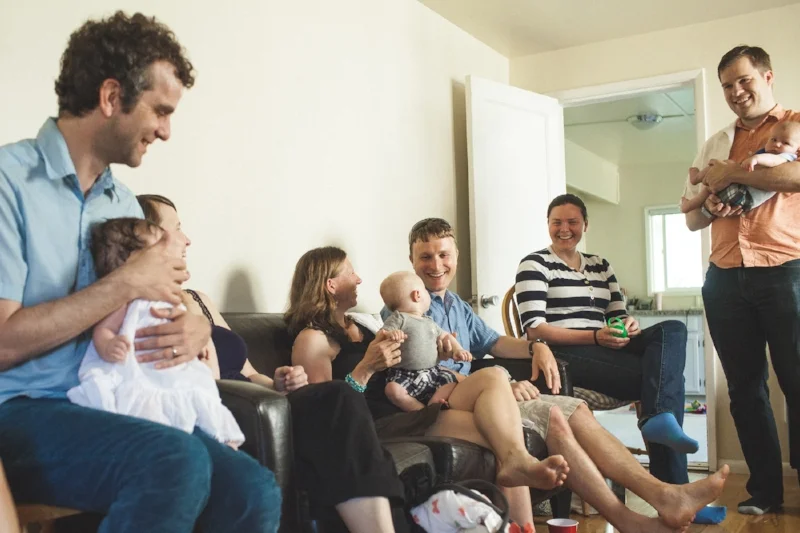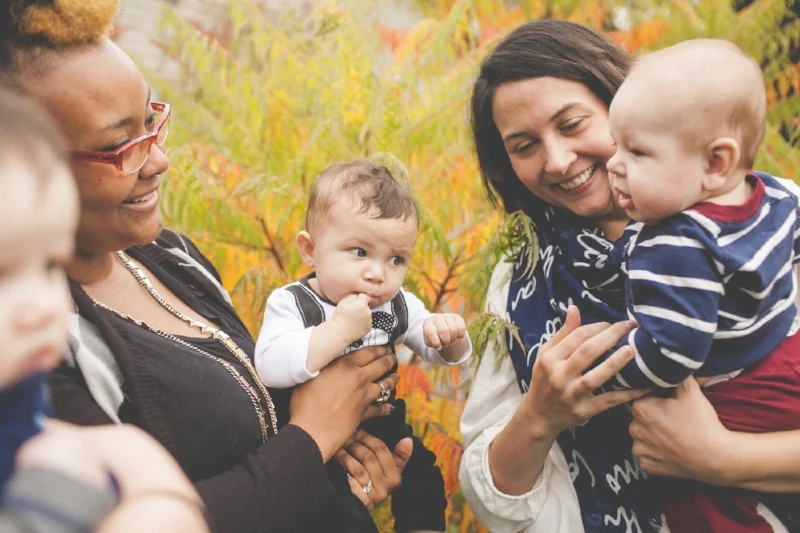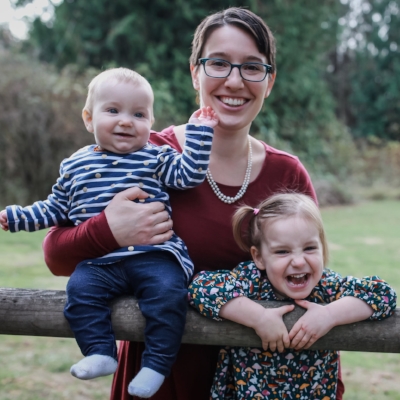Photo Credit: PEPS.org
Today, guest blogger Jennie Capron gives us some insights about why being part of a new parent group can be valuable. At the end I add in some additional groups in the Greater Seattle Area to look in to. - Melinda
When my first daughter was born, I went from being a full time small business owner who was active in my local professional community to a mom working from home. All at once, I had lost my community and taken on a major, life-changing responsibility. Many new parents find themselves at this crossroads, where their personal and professional identities change drastically.
The early months of having a new baby (or babies) at home are also often isolating and monotonous, yet family, friends and others around the new parents expect them to exude only joy and happiness about having a new baby.
Groups for new parents can help normalize this juxtaposition of feelings and experiences and create a community around this new role.
Photo Credit: PEPS.org
After the birth of our first, my husband and I joined a local parenting group, called PEPS. We met weekly with other new parents in our community – we were the first of our friends to have a baby and this group was the start of us building our parenting community. Unlike groups for pregnancy or classes for birth, this group was about being a parent. PEPS offers groups for 1 parent to attend or groups to attend with partners. We decided to go to a group together, meeting in the evenings, so that my husband could be part of the experience. Non-birth parents often find value in these groups as the transition to becoming a parent is major for everyone in the household. Both parents can gain insight, support and friendship from a community of other parents. Sometimes partners aren’t sure if they will gain much from a group, yet I’ve often heard afterwards what a wonderful experience it was to part of a parenting group.
In our group, there was time for structured discussion and connecting informally. During each meeting, parents shared the joy and the difficulties of parenting, knowing that the other parents in the room are experiencing similar highs and lows. Another component included time for learning new songs and activities and engaging the babies in addition to time dedicated to discussing various topics, guided by a facilitator.
We met for 12 weeks with the same families, spending time getting to know each other and watching the babies grow and develop. Many in our group created friendships that have continued since our 12-weeks of facilitated meetings.
Interest in parent support has been increasing, and several organizations have partnered with PEPS to offer groups in their communities. Parents may also find programs that are a drop-in format, or that focus on a specific issue such as feeding, sleep, postpartum mood and anxiety, or baby’s development. The facilitator may be a professional who works with new parents, a therapist or a community volunteer trained to facilitate the group. Groups may be comprised of birth parents or couples and are hosted in hospitals, community spaces or in people’s homes.
Photo Credit: PEPS.org
When considering joining a new parent group, the family should consider the groups available in their area and decide what they want from the group. Does the group have a fee? If it does, can the family afford it or receive financial aid? Does the group follow a format that works for the family: some people are looking for support on a specific topic or the flexibility to attend in a drop-in style, while others want to form a deeper parenting community by meeting with the same people weekly.
Joining a parent group can be invaluable, I’ve heard from many parents that their PEPS experience is what made getting through the first year with their new baby possible, that their community group saved their sanity or simply that the group was a fun way to get out in the early months. In my time working with new families, and as a new parent myself, I have seen the difference that building community and finding support through a new parent group can make to new parents. I encourage all new parents to research groups available in their area and consider joining one!
Melinda's suggestions of additional groups you may find useful:
Perinatal Support of Washington has a number of groups, mostly focusing on postpartum adjustment and perinatal mood and anxiety disorders. There are many options here including Seattle, Bellevue, Redmond, Lynnwood, Kirkland, Redmond, and farther outside Greater Seattle.
Little Sprouts New Parent Group in Mountlake Terrace, starts January 9, Melinda will be one of the rotating group of facilitators. This group is for all parents of babies 0-6 months, drop in, no fee, general focus.
Embracing the New Normal in Redmond, with Wendy Dean, a very experienced facilitator.
Listening Mothers has groups focused on Mindful Parenting.
Kitsap Hope Circle for those on the west side of Puget Sound.
Nurturing Expressions, in West Seattle, has a regular Breastfeeding Support drop in group
Many of our area hospitals also have new parent support groups and/or breastfeeding drop-in support groups.
Jennie Capron is a Community Connector at PEPS. Before joining the PEPS team, she spent nearly six years as a birth and postpartum doula. She was involved in the birth community as a board member for PALS doulas and facilitated several PEPS groups. Since 1983, PEPS (Program for Early Parent Support) has been connecting parents in neighborhood-based groups for newborns and older babies. With PEPS, parents create strong, healthy families with concrete support, social connections and parenting resources. PEPS is a 501(C)(3) nonprofit organization. To learn more about PEPS, please visit our website: www.peps.org




